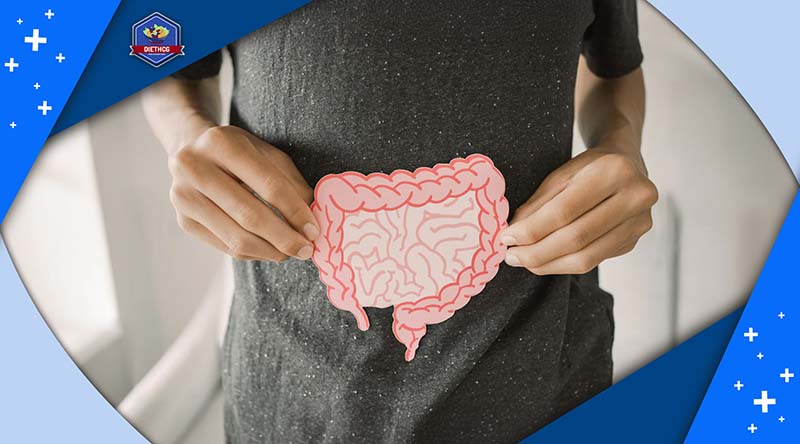The Mediterranean diet is renowned for its numerous health benefits, making it a highly recommended eating plan. Studies have consistently shown that adhering to this diet can significantly reduce the risk of heart disease, metabolic syndrome, diabetes, and certain types of cancer. Additionally, it has been linked to lower rates of depression and, among older adults, a reduced risk of frailty while enhancing both mental and physical functions.
For more in-depth information on how the Mediterranean diet promotes health and tips on how to incorporate it into your lifestyle, continue exploring Diethcg. Our site offers a wealth of resources that can help you understand the full benefits of this diet and guide you in making informed dietary choices.

1. Understanding the Mediterranean Diet
The Mediterranean diet is based on the traditional foods of countries bordering the Mediterranean Sea, such as France, Spain, Greece, and Italy. Research suggests that people in these regions tend to be healthier and have a lower risk of many chronic conditions compared to those who follow a standard American diet.

The Mediterranean diet encourages you to:
Consume more:
- Fruits
- Vegetables
- Whole grains
- Legumes
- Nuts and seeds
- Heart-healthy fats
Consume less:
- Processed foods
- Added sugars
- Refined grains
Limit:
- Alcohol consumption
Notes:
- Fresh and seasonal: Focus on fresh, seasonal produce for maximum nutrients.
- Diverse meals: Include a variety of foods to ensure a balanced intake of nutrients.
- Cooking methods: Prefer grilling, baking, or steaming over frying to keep meals healthy.
- Portion control: Even healthy foods should be consumed in appropriate portions to avoid overeating.
2. The Benefits of the Mediterranean Diet
The Mediterranean diet offers many benefits, including:
- Reducing Cardiovascular Disease Risk: It helps reduce the chances of heart attacks and strokes.
- Maintaining Healthy Body Weight: Supports maintaining a healthy weight.
- Improving Blood Sugar Levels, Blood Pressure, and Cholesterol: Helps keep these vital metrics in check.

- Reducing risk of metabolic syndrome: Lowers the likelihood of developing this cluster of conditions.
- Enhancing Gut Health: Promotes a balanced mix of beneficial bacteria in the digestive system.

- Lowering risk of certain cancers: Reduces the chances of developing specific types of cancer.
- Slowing Cognitive Decline: Aids in preserving cognitive function as one ages.
- Increasing longevity: Can contribute to a longer, healthier life.
Notes:
- Consistency is key: To gain these benefits, make the Mediterranean diet a regular part of your lifestyle.
- Balanced diet: Ensure your meals include a variety of food groups for optimal health.
- Stay hydrated: Drink plenty of water and limit sugary beverages.
- Community and meals: Eating with others can enhance the enjoyment and benefits of your diet.
3. How the Mediterranean Diet Contributes to Weight Loss
The Mediterranean diet can help you lose weight for several reasons:
- Plant-based Focus: A largely plant-based diet promotes weight loss due to lower calorie density and higher fiber content.
- Limit on Processed Foods: Reducing processed food intake helps cut down on empty calories and unhealthy additives.
- Satiety: Eating foods like fruits, vegetables, whole grains, and healthy fats keeps you full longer, reducing the urge to overeat.

- Long-term Lifestyle Changes: The diet encourages sustainable eating habits rather than restrictive dieting.
- Positive Focus: Instead of focusing on what you’re missing, the Mediterranean diet emphasizes enjoying a variety of delicious and nutritious foods.
Notes:
- Meal planning: Plan your meals to include a balance of protein, healthy fats, and fiber.
- Mindful eating: Pay attention to hunger and fullness cues to avoid overeating.
- Regular activity: Combine the diet with regular physical activity for the best weight loss results.
- Portion control: Even healthy foods can contribute to weight gain if consumed in large quantities.
4. Recommended Mediterranean Diet Recipes for Weight Loss
By now, you might be curious about what your Mediterranean diet should include to help with weight loss. Here are a few sample menus to get you started:
Menu 1:
- Breakfast: Busy Morning Egg Muffins + whole wheat toast
- Lunch: Easy Mediterranean Grilled Chicken Salad
- Dinner: Sheet Pan Panko-Crusted Dijon Salmon
Menu 2:
- Breakfast: Blueberry Peanut Butter Overnight Oats
- Lunch: Open-Faced Tuna Melt + Fruit
- Dinner: Veggie Lasagna with a Side Salad
Menu 3:
- Breakfast: Avocado Toast with Eggs + Fruit
- Lunch: Leftover Sheet Pan Salmon over Green Salad
- Dinner: Dijon Chicken + Parmesan and Herb Roasted Zucchini + Brown Rice
Snacks:
- Chocolate Fig Bites
- Sliced Apple + Nut Butter
- Homemade Roasted Red Pepper Hummus + Veggies
Notes:
- Preparation: Plan and prepare meals in advance to make healthy choices easier.
- Variety: Incorporate different vegetables, proteins, and whole grains to keep meals interesting.
- Healthy snacks: Choose snacks that provide a balance of protein, healthy fats, and fiber to keep you satisfied between meals.
5. Conclusion
The Mediterranean diet offers many health benefits, making it a highly recommended eating pattern. While there’s no single way to follow this diet, it generally involves eating more nutrient-dense foods like plant-based items, seafood, olive oil, and fresh herbs, while limiting foods high in calories but low in nutritional value.
Focus on the overall quality of your diet rather than individual foods. Start small for the best chance of sticking with your dietary changes and reaping the long-term benefits.


